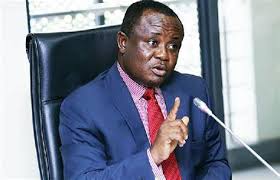Former first deputy speaker Joseph Osei Owusu, known as Joe Wise has weighed in on the ongoing debate surrounding the vetting process of ministerial nominees, urging the New Patriotic Party (NPP) caucus to devise an effective strategy to ensure thorough scrutiny.
Speaking in an interview in with Joynews , Osei Owusu clarified that there are no strict parliamentary rules dictating how questions should be asked during vetting.
Instead, the approach depends on how the Appointments Committee and the respective caucuses within it manage the process.
The conversation arose amidst claims that members of the committee were not provided with nominees’ CVs on time, and when they were, insufficient time was allocated for members to interrogate them.
Critics have described this as an impediment to the committee’s ability to perform its oversight role effectively.
Addressing these concerns, Osei Owusu noted that such delays are not new and can be managed if the committee adopts a well-coordinated approach.
“In the sixth Parliament, members often spent significant time on CVs and other materials before delving into substantive issues.
However, by the seventh and eighth Parliaments, we changed that approach.
Members now have three opportunities whether to scrutinize CVs, focus on policy issues, or raise broader concerns. It’s entirely up to the committee to decide how to proceed.”
Osei Owusu emphasized the need for the minority caucus, which traditionally asks tougher questions during vetting, to strategize effectively
“The majority, from whom the ministers are appointed, rarely ask difficult questions. It’s usually the minority that probes, scrutinizes CVs, and highlights inconsistencies.
They should nominate members specifically for this task, while others focus on broader issues like governance, potential scandals, or the nominee’s competence.”
“The minority may want to nominate one or two members to scrutinize CVs for inconsistencies while others tackle policy matters or controversies surrounding the nominee’s past.
This approach ensures a holistic examination of nominees and holds them accountable.”
Osei Owusu also explained that the structure of the vetting process is not rigid and is largely influenced by the leadership of the Appointments Committee.
“It’s the management of the committee that determines how the vetting should be conducted.
There are no hard and fast rules that say a particular aspect, like CV scrutiny, must take precedence. What’s important is that the process ensures transparency and accountability.”
The ongoing vetting of ministerial nominees has sparked broader discussions about the transparency and effectiveness of parliamentary processes.
Some stakeholders argue that delays in providing key documents like CVs undermine the ability of the legislature to scrutinize nominees effectively.
Ministerial appointments: There’s no rule about how questions should be asked; the NPP caucus must strategize effectively in how they ask their questions – Joseph Osei Owusu.#UPfront pic.twitter.com/xHsItRolgI
— JoyNews (@JoyNewsOnTV) January 17, 2025

